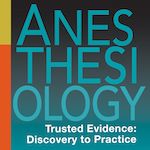Less-invasive anesthesia technique improves pediatric surgery safety, patient experience

Editor's Note A needle-based technique that blocks sensory and motor function below the chest without intubation or general anesthesia makes surgery safer for pediatric patients, according to a July 15 report in Michigan Medicine. The University of Michigan's pediatric spinal anesthesia program, also implemented at University of Michigan-Sparrow Health Center,…
Hemodynamic stability, less intraop hypotension risk with remimazolam in outpatient IR procedures

Editor's Note New research indicates the anesthetic combination of remimazolam and fentanyl provides optimal hemodynamic stability for patients undergoing short outpatient interventional radiology (IR) procedures, Anesthesiology News July 16 reports. This study, presented at the 2024 annual meeting of the Society for Ambulatory Anesthesia, compared common anesthetic combinations at a…
Breaking down the anesthesia workforce imbalance, strategies to address crisis

Editor's Note Increased demand for anesthesia services, especially in non-operating room (non-OR) sites, has outpaced the growth of anesthesia clinicians, a June 2024 special article published by the journal Anesthesiology reports. The imbalance in the anesthesia workforce supply and demand, the article argues, was exacerbated by the COVID-19 pandemic and…
Study finds no link between anesthesia dose, postop delirium

Editor's Note Higher doses of anesthesia did not affect risk of postoperative delirium in a study of more than 1,000 heart surgery patients, according to a June 10 United Press International (UPI) article on study findings published in JAMA. The research included 1,140 heart surgery patients, half of whom had…
FDA announces Class 1 recalls for patient return electrodes, intra-aortic balloon catheters, anesthesia systems

Editor's Note The US Food & Drug Administration (FDA) has announced Class 1 recalls—the most severe category, indicating risk of serious injury or death—for three products: MEGA SOFT Pediatric Patient Return Electrodes from Megadyne, Vaporizer Sevoflurane Maquet Filling from Getinge; and Arrow FiberOptix Intra-Aortic Balloon Catheter Kit and Arrow UltraFlex…
Study: standard preoperative fasting guidelines safe for GLP-1 patients

Editor's Note Preoperative use of GLP-1 receptor agonists (RA) medications such as Ozempic and Wegovy is safe, according to a study published in the June issue of the American Journal of Gastroenterology. Controversy has swirled around these drugs due to the risk of slowed stomach emptying increasing a patient’s odds…
Carbon-conscious health systems phase out desflurane anesthesia gas to reduce emissions

Editor's Note Citing environmental concerns, multiple health systems have stopped using desflurane anesthesia gas, Becker’s Hospital Review reported on May 7. Citing the Philadelphia Inquirer, the outlet notes that Children's Hospital of Philadelphia and Marlton, N.J.-based Virtua Health are among those that have eliminated the gas so far, with the…
Study: Surgical team diversity improves patient outcomes

Editor's Note The more diverse the surgical team, the better the outcomes for patients and the lower the cost of care, according to a study of more than 700,000 operations at 88 hospitals in Ontario, Canada. Published May 15 in the British Journal of Surgery, findings show that surgeon-anesthetist teams…
FDA announces class 1 recalls for infusion pumps, anesthesia workstation

Editor's Note Reports of spontaneous backup battery failure in Dreager Inc.’s Perseus A500 anesthesia workstation and multiple failures in InfuTronix, LLC’s Nimbus infusion pump systems prompted the FDA to classify manufacturer recalls as class 1, the most serious categorization indicating risk of serious harm or death. According to an April…
Private equity healthcare ownership draws new scrutiny

Editor's Note Over the last 10 years, private equity has taken over many of the nation’s health care facilities—from hospitals to nursing homes to physician practices—spending $1 trillion and instituting changes designed to rapidly increase profits, NBC News reported April 9. Studies have found that these takeovers can have serious…

 Free Daily News
Free Daily News